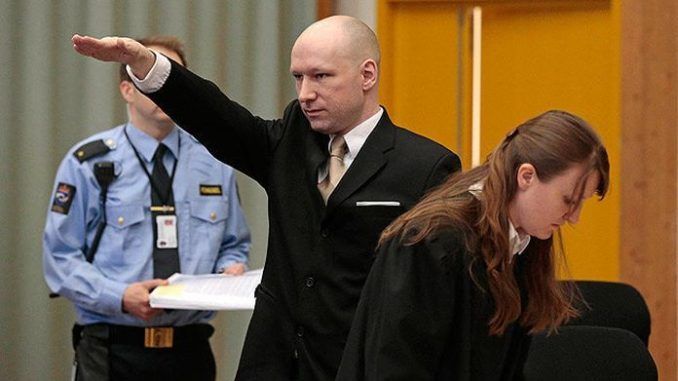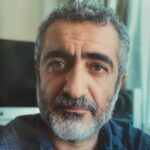
Norwegian mass murderer Anders Behring Breivik has won part of a human rights lawsuit against the government for “inhuman treatment.”
Right-wing extremist Breivik massacred 77 people in Norway in 2011 and now enjoys a cushy life in prison with all the mod cons.
He sued the government after his arrest for violation of his human rights. An Oslo court ruled in his favor on Wednesday on one of two claims, upholding his rights under the European Convention on Human Rights that prohibits degrading treatment of prisoners. His other alleged human rights violation claim was rejected.
The Independent reports:

BYPASS THE CENSORS
Sign up to get unfiltered news delivered straight to your inbox.
You can unsubscribe any time. By subscribing you agree to our Terms of Use
A summary of the ruling released by Oslo district court said judges found his detention violated article three of the European Convention of Human Rights, which relates to “inhuman or degrading” punishment.
The verdict said: “The prohibition of inhuman and degrading treatment represents a fundamental value in a democratic society. This applies no matter what – also in the treatment of terrorists and killers.”
Breivik’s claim that authorities also violated article eight of the convention, which protects the respect for private and family life, including correspondence, was rejected.
The court also ruled that the state will have to pay the prisoner’s legal fees, totalling 331,000 Norwegian krone (£28,300).
The case, against the Ministry of Justice and Public Security, was heard in Skien prison, in Telemark, from the 15 to 18 of March.
At court hearings last month, Breivik complained that prison authorities would not let him communicate with or receive visits from other right-wing extremists and had left him isolated.
The 37-year-old made a Nazi salute during one court appearance, staring at journalists as he made the gesture
Government lawyers dismissed his claims, saying Breivik remains a dangerous inmate who could inspire others to commit similar attacks.
On 22 July 2011, he set off a bomb in Oslo’s government district before carrying out a shooting massacre at the annual summer camp of the left-wing Labour Party’s youth organisation.
Eight people were killed in the explosion and 69 more died on Utoya island after he presented himself as a police officer carrying out security checks.
The majority of Breivik’s victims were children and teenagers as young as 14, with survivors describing how Breivik roamed the island for almost an hour picking off those trying to escape, shouting: “You are going to die today, Marxists”.
In court he claimed to belong to a far-right group called the “Knights Templar“, although prosecutors cast doubt on its existence. He has previously described himself as a fascist and wrote a manifesto citing Islam, feminism and “cultural Marxism” as his enemies.
In letters sent to media from prison, Breivik said he has abandoned his armed struggle and now wants to create a fascist movement while serving his sentence.
Before the ruling his lawyer, Oystein Storrvik, said the goal of the human rights case was to improve Breivik’s prison conditions, including interaction with other prisoners and fewer restrictions on his postal correspondence.
Breivik is held as the only inmate in a high-security wing of Skien prison, where he is serving a 21-year sentence. He is allowed some correspondence but it is strictly controlled and he is forbidden from communicating with other right-wing extremists.
The government said the restrictions are well within the European Convention of Human Rights and are needed to make sure Breivik remains unable to build militant extremist networks.


